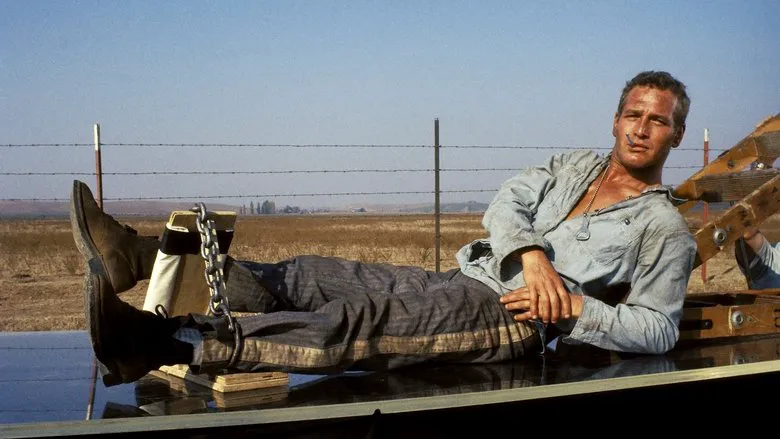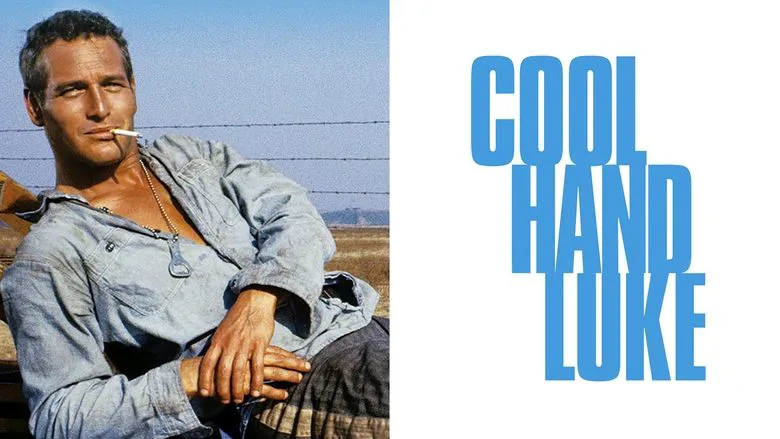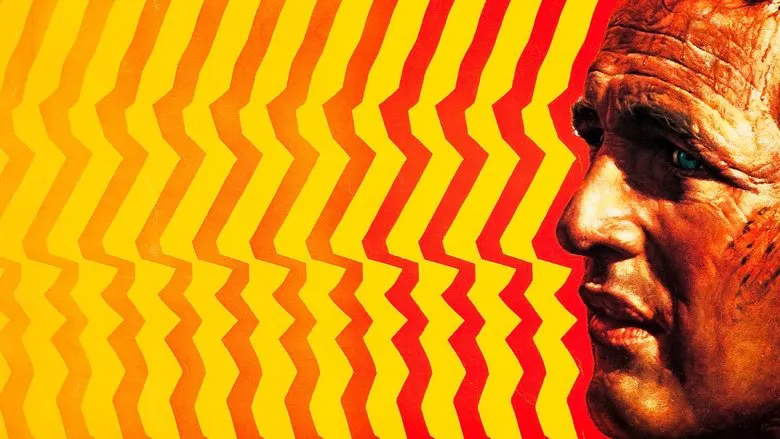A Fresh Look at “Cool Hand Luke”
Who here has seen “Cool Hand Luke”? It’s a film that resonates even decades after its 1967 release. Did it make your all-time list? It certainly deserves a spot! I couldn’t help but wonder if this was another case like “Papillon,” based on a true story. A quick search revealed it’s actually an adaptation of a 1965 novel.
The film, despite its age, feels incredibly relevant. Perhaps it’s just a testament to its enduring quality and the impact it had on me. I found myself admiring Luke and even wishing I could emulate his spirit. Though, realistically, I’m not sure I could pull it off!
The characters are truly memorable. The strong, silent man in sunglasses, always leaning on his cane, wordlessly observing, is an icon. And then there’s Dragline, the prison’s alpha, whose dynamic with Luke is the film’s driving force. Their initial animosity gives way to a grudging respect, born from Luke’s refusal to back down. Dragline eventually considers Luke a friend. Each of Luke’s escapes adds to his legend, with his repeated captures and indomitable spirit, solidifying his place in Dragline’s world. Even Luke’s mother, though appearing only briefly, leaves a lasting impression. Lying in a car, clearly unwell with a cigarette always in hand, her dialogue hints at the complexities of their relationship and maybe some deep-seated problems with our hero: Luke’s mention of “free space” makes one wonder what it truly means to him. I am left to wonder if the girl leaving him created a bigger issue, since she left him for a car…
Consider Luke’s backstory - the suggestion that he’s a decorated veteran. This is a common theme explored in American film, the psychological toll of war on the returning soldier, and “Cool Hand Luke” seems at least to touch upon it. Yet Luke, if suffering the effects of war when he arrives, seems to be deliberately provoking authority, almost always with a smile etched upon his face.
These observations are only based on the film!
The Essence of Luke’s Defiance
Luke’s initial arrest – destroying parking meters while drunk – is absurdly funny. He laughs when apprehended, calling it a form of “release”. But what exactly is he releasing? It seems more about rebellion and frustration than anything else.
There’s a sense of cool indifference about Luke, underlined by that knowing, defiant smile. There may be some heavy and meaningful past that haunts him, the most probable scenario involves the influence of his mother in his life.
And the opening monologue from the patrolman Carr is pure gold!
One darkly funny prison exchange:
Prisoner A: “How’d you get that scar?”
Prisoner B: “What scar?”
Silence
It’s hard to say why it works, but it’s humorous and sad at the same time.
Echoes and Influence
You can find bits of “Cool Hand Luke” sprinkled in many films such as Hong Kong prison films. One example being that there are scenes later echoed in “Fire Island.” Though I would say “Cool Hand Luke” is notably less overtly “campy”. The one aspect both films carry is their use of beautiful women - whether for a scene or a plot point.
Dragline’s screaming of “Lucille” from his bunk late at night torments his fellow inmates, preventing them from sleeping. It is only Luke who rises to the challenge and defies Dragline. Leading to their fight and Luke’s display of an indomitable spirit. Dragline is initially unimpressed physically, but like the warden, is impressed by Luke willingness toward death to win.
Later on Luke and Dragline have a fun, but again, tension filled exchange during a card game. The moment where Dragline gives a suggestive look and Luke retorts with, “Sometimes, a hand don’t have to be a winner to be a winner.” - classic Luke!
The famous egg-eating scene is another example of Luke’s almost stubborn insistence about life “Sometimes a man has to go along, that’s all,” sums up Luke, his charm - his likeability that had me wanting to almost be him. But seriously? 50 eggs in an hour?
He seems to be actively seeking a “breaking point”. By destroying meters, boxing, catching snakes, provoking a strong silent old man, and even eating 50 eggs in under an hour.
The Mother’s Death
Luke crumbles news about his mother’s news occurs. Retreating to his bunk, Luke plays the gift that she gave him and then he releases some tears. A confession, so do I. This is something personal that I usually don’t get into, but it had an effect. This reminds me of a Stephen Chow film (specifically King of Comedy, 1999) where he did a similar sequence after getting rejected form what he saw at his end goal and losing everything. Director Gordon Chan instructed Stephen Chow to convey sadness and he broke out into song. I wonder if Stephen Chow took from this film!
From then on, Luke is constantly trying to escape exhausting multiple bloodhounds. The only that I can fully see him defeated and broken is after his second time getting caught. It is the treatment of his fellow man that truly has him at his wits end, even considering breaking, but he cannot do it.
He lasts, he waits, he plans his next escape leading to his third escape. A final hurrah perhaps as he utters the final words.
“I never planned anything in my life”. Perhaps it is initially encouraging to have someone of legend admit that he “wings it”, but in this instant there is a tragedy lying underneath the plan.
By the end Luke appears to have given up, and admits that he does not want to do anything anymore.
The film is full of subtleties, with subtle events hinting something more significant later occurring. The film can be enjoyed at multiple angles: Characters, a dialogue, a setting done with purpose that keeps you wondering what happens next, and one cannot help but be drawn to the story. Luke’s final questioning up to god feels reflective of who he is. He puts on a visage of freedom, but lives the opposite! As he famously uttered: “Sometimes, a hand don’t have to be a winner to be a winner” but later wails “You ain’t never given me nothin’.”
Luke is unceremoniously shot and killed, the one who did the job, the strong silent man in sunglasses. Notably, this final moments has Dragline breaking toward violence. He grabs the guy by the neck - knocking off his glasses. An interesting moment. The “strong, silent man” begins frantically searching for, for is sight and appears blind - the strongest man, the one no one defies, left blind and frantic, is ironic to me.